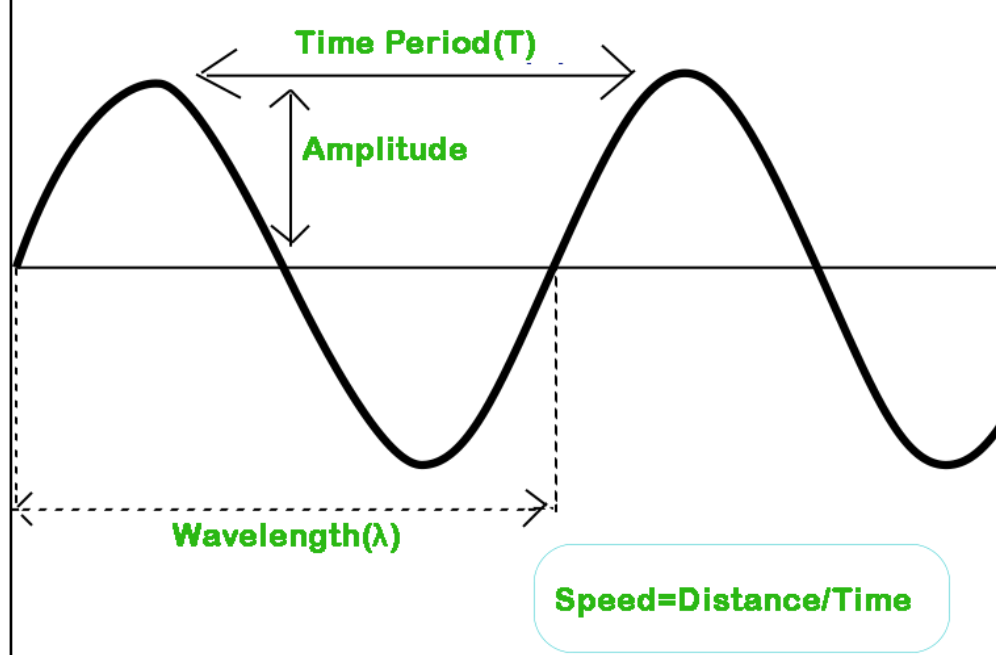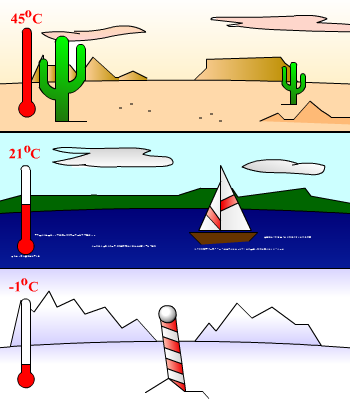Explain Why the Speed of Sound Changes in Different Mediums
Temperature affects the speed of sound because temperature can affect the elastic qualities of different mediums. The more rigid or less compressible the medium the faster the speed of.

2a It Shows The Different Mediums When The Frequency Stays The Same But The Wavelength Changes Music Education Activities Learning Targets Music Education
The speed of sound in a particular medium depends on temperature and pressure of that medium.

. That means in equation 1 ρ ρ decreases while P stays constant and again the speed of sound increases. For example sound waves travel fastest when they are moving through solids and tend to travel a lot slower when moving through gases and liquids. In any medium if the temperature increases the speed of.
Speed of Sound in Different Media. In general sound travels faster in liquids than in gases and quicker in solids than in liquids. In a fluid because the absence of shear forces sound waves are longitudinal.
The speed of sound decreases when it passes from solid to gaseous state of a given medium. Up to 24 cash back Air is the least dense of the three mediums. The speed of sound varies greatly depending upon the medium it is traveling through.
Based on your answer to question 26 explain why sound travels fastest through the particular medium. The speed of sound is increasing because were making the gas lighter so it oscillates faster. The speed of sound varies greatly depending upon the medium it is traveling through.
The interaction of the unattenuated waves and the substance introduces a lag which means there is a delay on the way through. The velocity of sound is different in solids and liquids. The speed of sound depends on the medium and the state of the medium.
The closer the particles are together the more energy gets efficiently. There is a system in which the frequency will change when the medium changes. The speed of the sound depends on the density and the elasticity of the medium through which it travels.
Air temperature can change the speed at which sound travels. Sound waves require a medium in order to travel. Frequency is independent of the medium whereas velocity of sound waves depends on elasticity and density of the medium.
Because the molecules are closer together they collide more frequently. However in liquids and solids the particles are close enough together that the difference from temperature is not significant. How The Speed of Sound Changes In Different Materials.
This is a very broad summary as its not only the type of material that makes a difference to the speed. Frequency is how quickly the medium is vibrating in cycles per second. When the elasticity increases and density decreases of a medium sound is allowed to travel faster.
The speed of sound depends on both the elasticity and density of the medium. The speed of sound in a medium is determined by a combination of the mediums rigidity or compressibility in gases and its density. At the very basics lower temperatures will decrease the speed of sound while higher temperatures will increase the speed of sound all other factors being equal.
The speed of sound is usually fastest in solids where molecules are closest together and slowest in gases where molecules are farthest apart. I understand that the length of the tube changes the standing wave in the tube but I ponder why the sound speed increase in the water changes the characteristics of the sound ie. Frequency of the sound wave changes only when there is a change in the source of the wave and is independent of the rigidity of the material medium.
Why is this temperature dependence more noticeable in a gas than in a solid or a liquid. And if we take a middle course and let the pressure and the volume increase then P increases and ρ decreases and again the speed of sound goes up. Answer 1 of 87.
The more rigid or less compressible. A string fixed at both ends such as a guitar string. A solid can support both longitudinal and transverse sound waves.
Molecules that have more motion higher temperature can transfer their vibrations more easily. That distance is called the wavelength. Because the molecules are farther apart the sound waves dont have as many molecules to bump against and it creates a much slower domino effect on the sound waves.
The speed that sound travels largely depends on the material type. When the air is warmer the sound travels faster and when the air is colder. But the speed it can travel through the new medium changes so the distance it moves during one cycle of vibration will also change.
I understand that sound often travels fastest out of solids liquids and gases in solids less fast in liquids and slowest in gases. This is because the wavelengths are fixed 2L L L2 L3 etc but the speed of the wave is changing. That means that the speed of the wave will be measured as slower.
Reflection of the sound. Answer 1 of 5. When a photon enter iside a material like water or air there a lot of atoms and molecules in his path and many things happens when a photon and an atom or molecule crash.
In the atom theres a lot of electrons and. It is the wavelength but not the frequency that changes. So whatever we do.
A medium can be a solid liquid or a gas such as air. A soundwave is basically only the travel of energy pulses threw a medium. For gases the faster the particles the more they bump into each other.
Different mediums have different density so speed of sound will changehence the direction of sound wave will change. The greater the elasticity and the lower the density the faster sound travels in a medium. The speed of sound in a medium is determined by a combination of the mediums rigidity or compressibility in gases and its density.
The speed of sound in a medium is determined by a combination of the mediums rigidity or compressibility in gases and its density. If you pluck a guitar string then change the medium status by changing the tension the pitch you hear will change. Higher temperatures lower the density of a medium which puts less resistance.
In air the speed of sound is related to air temperature T by v is the same for all frequencies and wavelengths of sound in air. The power of the light beam will be attenuated. It relies on a particle passing its energy to another particle in its close proximity.
Explain why the speed of sound depends on the temperature of the medium. The speed of sound depends upon the temperature of a medium because temperature determines the speed of the particles. The more rigid or less compressible the medium the faster the speed of sound.
Table 1 makes it apparent that the speed of sound varies greatly in different media.



No comments for "Explain Why the Speed of Sound Changes in Different Mediums"
Post a Comment